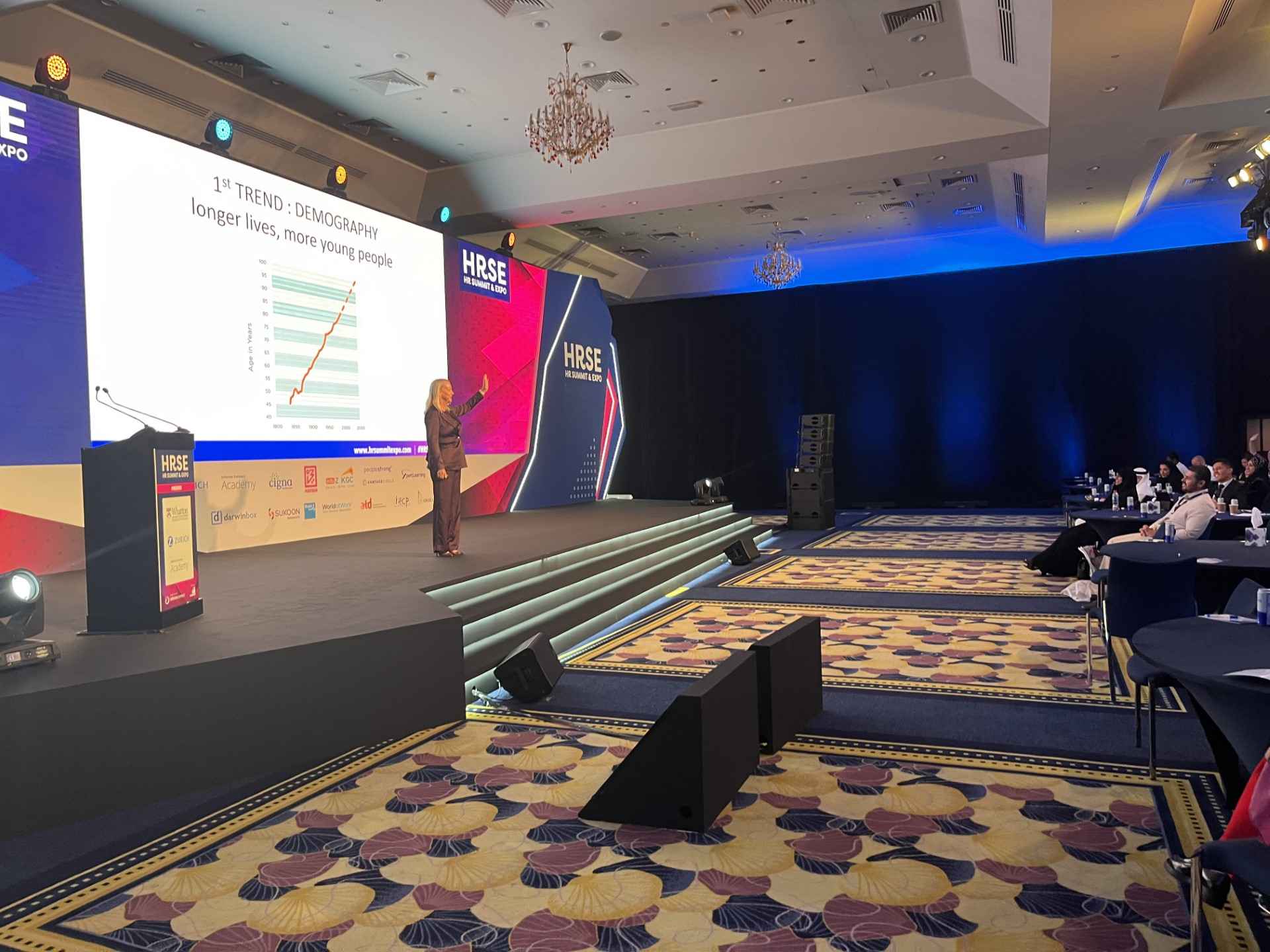
Organisations need to support organisational change and identify specific human capital domains that will be affected by Generative AI. Areas such as talent development, productivity and change management will be affected the most.
“You need to keep the experiments going,” said Lynda Gratton, Professor & Organisational Theorist at London Business School during her speech at HRSE Summit & Expo.
The pandemic has changed how people think about work and where to conduct it; but also how companies decide what’s the “deal.”
“It is important that you decide what the deal is and your employees to decide whether they want to accept it or not,” she explained. As long as the organisations decide the deal, people can walk away, she said.
“As we think about the future we think about demography… and the impact of technology in terms of both changing the jobs we do but also creating some astonishing new jobs, ” added Lynda.
By 2030 around 20-50 millions will have new jobs created, digital and the green transition. About 60% of jobs, which is one third of tasks, can be automated.
The third trend, she explains, is about society: how we think about ourselves, how we think about each other. Gratton explains how social norms change such as it did previously when women entered the workforce.
“Those are the three trends that I have been looking at for the past 30 years,” she adds.
Gratton speaks about three concepts, they are: freeze, unfreeze and refreeze of the employees. Freeze is when the companies insist that the employees stay in the offices and work, unfreeze is when companies change their attitude to work and let go of bureaucracy and refreeze is bringing back the components of work and deciding again how people want to work.
The refreeze phase is emerging new realities for the work such as deeper understanding of Zoom ideation vs idea selection. Gratton explains that meetings have gone by 50% due to the movement of meetings to online.Sh explains that zoom meetings interrupts time to focus and think. But also the social interaction decreases as people work from their home.
“Friendship, networks is really really important,” she added. There have been tough calls, she said, people asking what the office is for and experimenting with different types of work setting to increase efficiency.
“The truth is that the world is changing at such a pace, and one of the things that your CEO wants you to know is an idea of the future,” she said on how the future of work is changing with the increase of usage of Generative AI.
Gratton explains the pandemic, Generative AI and freelancers have changed how work has been in the freeze phase, which means companies have to redesign work and re-imagine what could be.
Technologists say that Generative AI could boost productivity by between 3 to 7%. Meanwhile, current breakthroughs are the result of significant investments ($12 billion in the first 5 months of 2023). Generative AI’s progress has been imperceptible, explains Gratton.
“When you think about the impact of technology at work, think about the tasks, not the work. Its the task that are going to change,” she said.
Tasks can be routine and non routine. On the routine analytical tasks can be as record keeping calculation, repetitive, customer services, the manual such as picking and sorting, repetitive assembly. Meanwhile non routine analytical such as forming hypotheses, medical diagnosis and persuading, the non routine manual such as janitorial services and truck driving.
Generative AI is accelerating the speed of impact and also has a significant impact on knowledge work. The pace of workforce transformation is likely to be accelerated, given increases in the potential for technical automation. Half of today’s work could be automated between 2030-2060.
“It is absolutely terrifying isn’t it,” Gratton told her crowd about the expansion of the Generative AI “we just don’t know, we are watching and experimenting.”